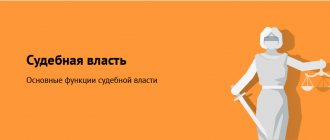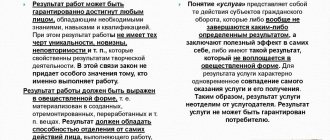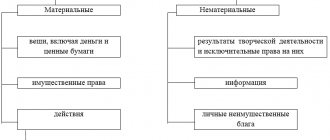ATTENTION!
Federal Constitutional Law No. 1-FKZ dated July 29, 2018 establishes:
- Cassation courts of general jurisdiction and courts of appeal of general jurisdiction are considered formed from the date of appointment to the position of at least one-half of the established number of judges of the relevant court. The decision on the start date of the activities of these courts is made by the Plenum of the Supreme Court of the Russian Federation and officially notifies about this no later than October 1, 2021.
- Chapter II of the federal constitutional law of June 23, 1999 N 1-FKZ “On military courts of the Russian Federation” is supplemented by Art. Art. 12.1 - 12.16 from the entry into force of the relevant legislative acts on amendments to the legislation on military courts, but no later than October 1, 2021.
Art. 1 of the Federal Constitutional Law of 02/07/2011 N 1-FKZ “On courts of general jurisdiction in the Russian Federation” determines that the system of courts of general jurisdiction in the Russian Federation includes:
- federal courts of general jurisdiction;
- courts of general jurisdiction of the constituent entities of the Russian Federation (magistrates).
Kinds
Today there are five judicial authorities in Russia:
- Court of First Instance. Interested parties submit claims, petitions and statements to this body for consideration on the merits.
- An appellate court that reviews decisions of a lower court before they enter into legal force.
- The cassation instance, designed to evaluate the legitimacy of the will of the court of first and appellate instances.
- Supervisory authority. Its area of competence includes the review of decisions of lower courts that have entered into legal force.
- Trial based on newly discovered and new circumstances.
Court of First Instance
The main activity of this body is consideration of the case on the merits, during which the arguments and evidence of interested parties (plaintiffs, respondents, applicants) are examined and the true circumstances of the case are established. As a result of this work, the presiding officer makes decisions aimed at restoring violated rights, complying with the requirements of the law and establishing social justice.
In the first instance, appeals from citizens and organizations are competent to consider all courts, except for federal district arbitration courts and arbitration courts of appeal. Based on the results of consideration of cases at first instance, the courts rule:
- sentences;
- solutions;
- orders;
- definitions.
Sentence
Establishes the guilt or absence of guilt of a person, as well as the need to apply penalties or release from them. The verdict is the most important judicial document. The importance is explained by the fact that no person is considered guilty of a crime until guilt is established by a verdict. This circumstance imposes increased responsibility on criminal courts, since human lives depend on their decisions.
The verdict records the results of the procedural actions of all parties to the proceedings and determines the legal status of each of them, in which the parties will remain for a certain time. After the verdict in the case comes into force, re-bringing a citizen to criminal liability on the same grounds is prohibited.
Solution
An act restoring the violated rights and interests of subjects. It puts a kind of end to the proceedings, establishes the rights and obligations of the parties in relation to each other and/or third parties, and resolves the conflict between the plaintiff and the defendant. The form, content and structure of the decision are strictly regulated by procedural legislation. In addition, the law determines the period for its adoption and entry into force.
Order
A ruling made on the basis of an application from a creditor to collect funds or property from a debtor. It confirms the substantive and legal relations between the parties, and also establishes the grounds for the transfer of funds from one party to the other.
To issue an order, a number of conditions must be met. First of all, this is the absence of a dispute about the right and the “indisputability” of the claimant’s claims, and secondly, the fact that the debtor did not notify the court of his disagreement with the presented claim.
An important feature of the order is that it itself is an executive document and can be presented for execution within a specified period.
Definition
An act that is issued during the consideration of a specific case. The definition does not resolve the situation on its merits. Its purpose is to resolve issues that arise during the process.
Court is...
A court is a body that resolves legal disputes based on existing rules of law. In organizational terms, it consists of two parts: judges (and their panels) and the judicial apparatus.
The first, in fact, are the embodiment of judicial power. They consider cases based on inner conviction and are guided by current legislation. Judges' decisions are binding and are enforced by state coercion.
Formally, the judiciary is independent of the other two branches - the legislative and the executive.
That is, none of the officials or deputies has the right to tell the judge what decision to make. Each branch of government has its own systems of authority and funding.
The judicial apparatus is people who work in court, but do not directly administer justice. They solve organizational and technical problems, that is, they help judges.
Here are examples of people who enter the apparatus:
- secretaries of court sessions - keep minutes, send subpoenas, familiarize participants with the case materials;
- specialists from departments and departments, advisers - respond to citizens’ requests, maintain statistics on the consideration of cases, give advice, and participate in meetings to improve the functioning of the judicial system;
- assistant to the chairman - prepares draft documents, distributes cases to judges;
- office and archive workers – receive and forward court correspondence and ensure the safety of cases.
The effective work of the court is the result of joint efforts of all levels. Just like mistakes in handling cases cannot be attributed to an individual.
Often, a judge has 10-15 trials a day due to the top economizing on personnel or the illiterate distribution of cases.
This leads to a superficial consideration of disputes and omission of details. According to a 2018 Institute for Law Enforcement Studies survey, more than three-quarters of judges are regularly delayed at work.
Appellate instance
Resolutions that have not entered into legal force are considered on appeal:
- district courts - decisions approved by magistrates' courts;
- supreme courts of the constituent entities of the federation, courts of territories, regions, including autonomous ones, courts of military districts - acts of district and garrison courts;
- appellate courts of general jurisdiction - decisions, sentences and rulings of the supreme courts of the constituent entities of the federation, regional, regional courts, as well as courts located in cities of federal significance;
- military court of appeal - acts adopted in the first instance by the courts of military districts.
The activity of the appellate court consists of re-examining the case materials and evidence, including those that, for objective reasons, were not made public at the initial hearings. The presiding judge assesses the legality of the decision of the lower judge. By its decision, the appeal has the power to fully or partially declare the disputed act invalid, cancel it, or make a new decision on the case.
Acts of appeal take the form of an appellate ruling. It comes into force on the day of announcement and can be appealed through the cassation and supervisory procedures.
Cassation instance
If it is necessary to review the decisions of lower courts, interested parties have the right to file a corresponding complaint with the cassation authority. It is important to note that the revision of acts can be carried out in the cassation court of general jurisdiction and in the Judicial Collegium of the Armed Forces of the Russian Federation.
The first option is used to appeal decisions made by district courts, courts of territories, regions, autonomous republics and federal subjects. The parties to the primary hearings and other persons whose interests were affected by the controversial decision can file complaints. It does not matter whether they were involved in the process or not.
An appeal to the cassation instance is allowed only if an appeal ruling has already been made in the case. There are some judicial acts that are not subject to appeal review. They constitute an exception to this rule and can be immediately challenged in the court of cassation.
The second option (review by the judicial panel of the RF Armed Forces) is applied to decisions, a detailed list of which is enshrined in Part 2 of Article 390.2 of the Code of Civil Procedure of the Russian Federation. Not only the plaintiff and the defendant, but also the Prosecutor General, can file a complaint with the judicial panel, provided that a prosecutor participated in the initial hearings.
Courts of appeal and cassation of general jurisdiction began work
On July 30, 2021, the Federal Constitutional Law of July 29, 2021 No. 1-FKZ “On Amendments to the Federal Constitutional Law “On the Judicial System of the Russian Federation” and certain federal constitutional laws in connection with the creation of cassation courts of general jurisdiction and courts of appeal of general jurisdiction." It provides for the creation on the territory of Russia of five appellate and nine cassation courts of general jurisdiction.
New courts of appeal and cassation instances for reviewing judicial acts in civil and administrative cases began to operate on October 1. These are structurally independent judicial authorities and superior judicial bodies in relation to regional and equal courts.
If we compare the judicial systems of Great Britain, the USA and Russia, then, in my opinion, the domestic system is much more complex. This is how it happened historically and is explained by the fact that the Russian legal system is considered Romano-Germanic, while America or Britain belongs to the Anglo-Saxon one. In particular, in the judicial system of England, where judicial precedent is recognized as the main source of law, there is a special judicial body that influences the formation of the entire law of the country - the Court of Appeal. All decisions of lower judicial bodies can be appealed against. The highest judicial body in Great Britain is the Supreme Court, which together forms the Crown Court, the High Court and the Court of Appeal, which are independent judicial institutions.
The US federal court system has three levels. On the lower level there are federal district and specialized courts. The second is the federal appellate courts. The highest court of appeal is the Supreme Court. Unlike appellate courts, it decides cases at its own discretion. Of the many thousands of cases that come before the US Supreme Court, only about a hundred of the most important are accepted. It is noteworthy that the judicial systems of the UK and the USA do not have a cassation body as such.
Let's consider what innovations are expected in connection with the start of the work of cassation courts of general jurisdiction and what has changed significantly in the regulatory legal framework.
Firstly,
Currently, 6 months are given to file a cassation appeal. Now, in order to file a complaint with the cassation court, you will need to do so within 3 months from the date of entry into force of the contested judicial act.
Secondly,
The procedure for filing a complaint has changed. Now it will need to be sent to the court of cassation through the court of first instance. Currently, a written demand is submitted directly to the cassation authority.
I believe that these innovations will have a positive impact on the judicial system. Today, the panels of appeal and cassation boards are in one court with one chairman. Under the new judicial system, consideration of appeals and cassation complaints and submissions against judicial acts will not be carried out in the same court that considered the case in the first instance, which will help ensure the principle of independence and impartiality.
Thus, in my practice, the Supreme Court of the Russian Federation recently considered a petition from the chairman of a regional court of one of the republics of the Russian Federation to change territorial jurisdiction. It was filed due to the fact that there were many defendants in the case, it went through several instances within the same court and all the judges had already taken part in the hearings. During the new consideration of the case, the principle of independence and impartiality was violated, and therefore the case was transferred to a neighboring region for study by a new panel, which increased the chances of a favorable outcome.
The separation of the cassation and appeal courts of general jurisdiction into separate independent instances, not connected by the territory of the constituent entities of our state, neutralizes the influence on them from various clans in the region, including representatives of law enforcement agencies. The disadvantage, in my opinion, will be the fact that the parties to the case in such courts are often individuals, for whom access to justice will be hampered by the need to attend a court hearing in another region. It is still difficult to say how this problem will be solved, but this disadvantage is offset by the much more significant possibility of transparent administration of justice.
It is interesting that in Russia a case is first investigated and then sent to court. From 2009 to 2013, judges convicted about 75% of defendants each year. Thus, the average criminal judge over the course of 7 years handed down about 500 convictions and only one acquittal. According to statistics, only 0.2% of cases considered by Russian courts ended in acquittals in 2021. Chairman of the Supreme Court Vyacheslav Lebedev also spoke on this topic, emphasizing the general accusatory bias of domestic justice. It turns out that with a probability of 99.64% the accused in Russia will be found guilty if the case goes to trial!
Despite the fact that the same Romano-Germanic legal system operates in most EU countries, the number of acquittals there is many times higher: 4% in Germany, 7% in France. In the USA, for example, any police case goes straight to court, and only then investigative actions begin. The highest percentage of acquittals in the world was recorded in India (51.9%), Turkey (13.7%) and Egypt (7.8%).
Thirdly, one of the innovations of the judicial reform is the introduction in the courts of general jurisdiction of the principle of “complete cassation”, which implies a collegial consideration of complaints in a court hearing without any preliminary selection. The judge will decide alone whether to accept the appeal for consideration by the cassation court. 5 days are allotted for this from the date of receipt of the complaint along with the case in court. Any complaint that formally meets the requirements will be accepted for processing.
The amendment made to the original version of the draft to invalidate clause 2 of Art. 29 of the Law on Courts of General Jurisdiction, when, after the expiration of the term of office, the chairman of the supreme court of a regional, regional, republican court, court of a federal city, autonomous region and district could be appointed to the position of chairman of the same court for a new term, eliminates the corruption factor in the activities of courts , not allowing judges to “merge” with political elites.
I believe that the introduction of the principle of “complete cassation” and the creation of organizationally separate courts of appeal and cassation of general jurisdiction will help ensure greater independence and objectivity in the consideration of cases, increase the percentage of judicial acts subject to review in cassation, and reduce the risks of regional influence on the activities of judges.
It seems that in general, the reform of the system of appeal and cassation courts and the principle of transferring all complaints directly to the cassation authority will definitely have a positive impact on the protection of the rights and legitimate interests of both citizens and legal entities who appeal to higher courts.
Undoubtedly, the proposed measures are only the first significant step towards access to adequate justice. However, some questions remained unresolved. So, while decisions on criminal trials by a magistrate are reviewed on appeal by a district court, and the decisions of the latter, in turn, are reviewed by a regional court. That is, it is the magistrates’ and district courts that today are considered the main level courts and consider the largest number of cases. The new law does not address this point. By the way, the presidiums of regional courts review a small number of cases. Often cases of the first cassation were not considered due to the refusal to transfer a particular case to the presidium. Assigning the function of cassation review to an institution separate from the regional court, especially one geographically remote from it, should eliminate this problem. But in order to evaluate the effect of innovations, at least a year or two must pass when new statistical data appears.
Supervisory authority
The review by way of supervision is carried out by the Presidium of the Supreme Court of the Russian Federation.
This authority reviews acts of lower courts that have entered into legal force. The supervisory appeal is filed within 3 months after the controversial decision is issued. The applicant's task is to draw the attention of the presiding judge to violations committed by lower judges. The supervisory complaint and the prosecutor's presentation are drawn up according to the rules of Article 391.3 of the Code of Civil Procedure of the Russian Federation. If the applicant has violated the rules, the application will be returned without consideration within 10 days.
Complaints and submissions that meet the prescribed requirements are submitted for examination to a judge of the Supreme Court. Simultaneously with the request of the case, a ruling is issued from the lower court to suspend the enforcement proceedings. After which execution is suspended until the completion of supervisory hearings.
Based on the results of studying the materials, the judge of the Supreme Court makes the following decisions:
- refuse to transfer a complaint or presentation to the Presidium for consideration;
- submit the complaint or presentation to the Presidium for consideration.
Supervisory hearings last 60 days if the case has not been requested from a lower court, and 90 days if the Supreme Court judge has requested materials for review. When considering particularly difficult situations, these deadlines are extended for another 2 months.
So who or what does the court obey?
Leaving the building in the Kursk region. the court “blowed through” the appeal, where the decision of the Kastorensky District Court was subject to cancellation at least in the part that the court imposed legal costs on the defendant, and the plaintiff did not make such claims. I don’t know what the district court was guided by, but having entered the case at the appeal stage, I indicated to the regional court in the text of the complaint, giving explanations and in the text of the explanation to those attached to the case, that the court of first instance committed a violation of Part 3 of Art. 196 Code of Civil Procedure of the Russian Federation. In other words, he who has eyes, let him see, and he who has ears, let him hear. The result is that my arguments fell on deaf ears and remained invisible to the whole panel of three judges (I mentally called them assholes, somewhere on a pile under the window they would look very colorful). Leaving the courthouse, digesting what had happened, I began to think, so what or who is the court subordinate to? Looked into the Constitution Article 120 1. Judges are independent and are subject only to the Constitution of the Russian Federation and federal law. Article 119 Judges can be citizens of the Russian Federation who have reached 25 years of age, have a higher legal education and have worked in the legal profession for at least five years. And then in the law on the status of judges Article 4. Requirements for candidates for the position of judge 1. A citizen can be a judge of the Russian Federation: 1) having a higher legal education in the specialty “Jurisprudence” or a higher education in the field of preparation “Jurisprudence” with qualification (degree) “master” and having a bachelor’s degree in the field of study “Jurisprudence”; 4) not recognized by the court as incompetent or partially capable; 5) not registered with a narcological or psychoneurological dispensary in connection with treatment for alcoholism, drug addiction, substance abuse, chronic and protracted mental disorders; 6) does not have other diseases that prevent the exercise of the powers of a judge. Yeah, I think the judges are not deaf or blind, it seems that they are not hungover, at least two out of three and not high (the pupils were not dilated) in those Well, two, I didn’t see the third in detail. I also can’t say anything about insanity, the questions were relevant to the case, the reaction to my explanations and petitions was adequate. Then I had another question, what is the law to which these judges were subject?
If we recall the TGP, then the law is a norm of behavior ensured by measures of state coercion. And indeed, for violation of the law by individuals, legal entities or the state represented by its officials, there is, depending on the subject, civil, criminal or administrative liability. For example, violated at least , the job description in the process of labor activity and shovel it completely. And this applies to everyone to one degree or another in any type of activity, with the exception of judges in the process of administering justice; the judge does not bear any responsibility even for delusional decisions.
In the worst case scenario for a judge, his decision will be overturned by a higher authority. and with a probability tending to zero, as colleagues have repeatedly written about.
In the literature and in various articles, this state of affairs is due to the fact that judges are also people and can make mistakes, and it is precisely to correct possible errors that the multi-level judicial system is piled up. I agree that no one is immune from mistakes, but let’s not forget that the judge has a legal education! He passed the exam!
Consequently, he MUST know the laws, at least procedural ones. For a judge, the Civil Procedure Code of the Arbitration and Procedural Code of the Criminal Procedure Code is nothing more than a job description, for deviation from which in other areas of activity, a sanction will follow immediately.
Let's take, for example, the Code of Civil Procedure of the Russian Federation, where the notorious “judicial errors” are set out in detail in Art. 330 Code of Civil Procedure of the Russian Federation and are divided into several categories. In my opinion, a miscarriage of justice includes: 1) incorrect determination of circumstances relevant to the case; 2) failure to prove the circumstances relevant to the case established by the court of first instance; 3) discrepancy between the conclusions of the court of first instance, set out in the court decision, and the circumstances of the case; But this indicates the professional unsuitability of the judge: 4) violation or incorrect application of substantive law or procedural law. 2. Incorrect application of substantive law is: 1) non-application of the law to be applied; 2) application of a law that is not subject to application; 3) incorrect interpretation of the law. And if the non-application of some specific laws can still be allowed, but how can violation of procedural norms be allowed?! This is not just lack of knowledge, but a frankly disregardful attitude towards one’s duties, and in terms of the severity of the consequences, it has the element of a crime of “negligence” or malfeasance.
But this speaks not only of sloppiness, but of official forgery: 1) consideration of the case by the court in an illegal composition; 2) consideration of the case in the absence of any of the persons participating in the case and not properly notified of the time and place of the court hearing; 3) violation of the rules on the language in which judicial proceedings are conducted; 4) the court makes a decision on the rights and obligations of persons not involved in the case; 5) the court decision was not signed by the judge or any of the judges, or the court decision was signed by the wrong judge or judges who were part of the court that considered the case; 6) absence of the minutes of the court session in the case; 7) violation of the rule on the secrecy of the conference of judges when making a decision. In other words, much of the above should also be written in the Criminal Code of the Russian Federation or at least in the Code of Administrative Offenses in the relevant chapters.
So the question is, is it interesting for a judge to obey the law? And what should a citizen who goes to court expect? Probably, when going to court, first of all you should light a candle so that the judge is guided by the law, and not by his mood or some other cockroaches...
So what law does a judge obey??? We can conclude that, apart from the Constitution and federal laws, nothing prevents a judge from obeying his own law or the laws issued by his cockroaches.
Lack of responsibility leads to the fact that the judge of the first instance openly spits on the law or demonstrates his professional unsuitability; the appeal does not notice this point-blank with its two senses, since the gaze may become clouded and the ears suddenly become blocked, well, and the cassation office is engaged in formal replies since their hearing is not required, and you can forget your glasses, so they simply cannot see the violations.
And everything is like in a fairy tale, the further it goes, the worse it gets. Here, deputy Kalashnikov was found in the Federation Council and proposed amending the law and dismissing judges for three cancellations of their decisions https://pravo.ru/news/view/135840/ in which I fully support him, but at the same time the Supreme Court of the Russian Federation in the resolution of the plenum from April 14, 2016 N 13 Moscow “On the judicial practice of applying legislation governing issues of disciplinary liability of judges” https://rg.ru/2016/04/27/sud-dok.html believes that the professional unsuitability of a judge for the listed The above signs are not at all the basis for org. conclusions and it would be okay if the judges just didn’t follow the law, but the RF Supreme Court doesn’t have a decree for them with its plenums and explanations. Is it that the raven doesn’t want to peck at the crow’s eye?
Where are we going? And how will this all end?
Court based on newly discovered and new circumstances
This authority is called upon to reconsider decisions that have entered into legal force in connection with the emergence of newly discovered and new circumstances. Review is the responsibility of the court that approved the decision. Participants in the process, the prosecutor and interested third parties can request a second review. They must do this before the expiration of 3 months from the date of occurrence of new or newly discovered circumstances. More specifically, the filing deadlines are regulated in Article 395 of the Code of Civil Procedure of the Russian Federation.










